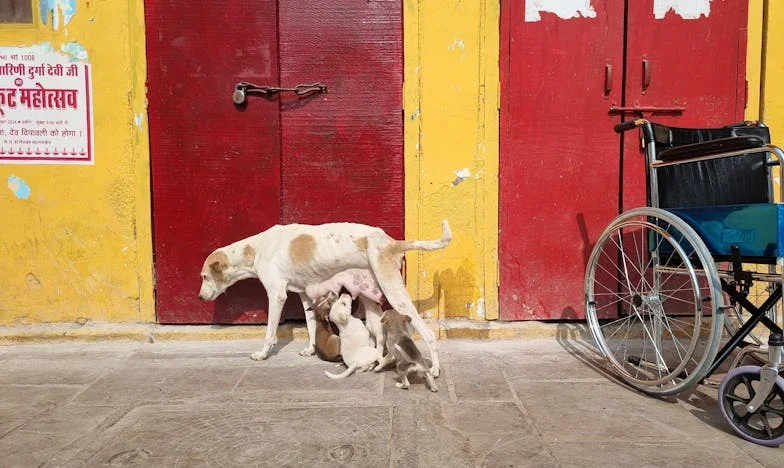When the Browser Froze: How I Learned to Leave With Dignity
“Why is your Facebook open, Piotr?” I called out, my voice trembling, fingers hovering over the mouse. I watched the blue notification bubble pulse. I shouldn’t have looked. I know that now. But that night in our small, cluttered living room in suburban Ohio, curiosity was my only companion. I clicked.
The message opened instantly, and my eyes scanned the words before my mind could process them. ‘Last night was amazing. I can’t stop thinking about you. When can I see you again?’ The sender’s name—Jessica—was unfamiliar, but what she wrote was unmistakable. My breath caught. The world shrunk to the glare of the monitor, the hum of the dishwasher, the distant laughter of our eight-year-old, Emily, playing in her room.
I sat frozen, a thousand thoughts racing. Was it my fault? Was I not enough? I heard Piotr’s footsteps upstairs, oblivious to the bomb that had just detonated in my chest. For a moment, I did nothing. Then I closed the browser. I wiped my tears, pulled myself together, and walked into the kitchen to start dinner, just like any other Tuesday night.
But I wasn’t the same.
That night, Piotr came down, his phone in hand, smiling like nothing in the world could touch us. “You okay, Agnieszka?” he asked, using the Americanized nickname he’d adopted since his promotion at work. “You look tired.”
I forced a smile. “Just work stuff.”
We ate in silence, Emily chattering about school, Piotr nodding absently, texting under the table. Every ping made me flinch. I watched him, wondering when the man I married became a stranger.
The next morning, after dropping Emily at school, I sat in the parking lot, gripping the steering wheel until my knuckles turned white. Should I confront him? Pretend I didn’t know? Was divorce even an option? My parents had come to America with nothing but dreams and faith in family. Divorce, to them, was failure. Shameful. But betrayal? I wiped my tears on my sleeve, steeling myself.
That evening, I waited until Emily was asleep. I poured two glasses of wine and sat across from Piotr at the kitchen table.
“Is there something you want to tell me?” My voice was steady, but my heart thundered.
He looked at me, surprise flickering in his eyes. “No. Why?”
I slid the laptop toward him, the message open. He stared, then looked away. “It’s not what you think.”
I laughed, the sound sharp and bitter. “It’s exactly what I think.”
He put his head in his hands. “I’m sorry, Agnieszka. I didn’t mean for this to happen.”
“Didn’t mean for what, Piotr? For me to find out, or for you to cheat?”
He was silent. The clock ticked. A car passed outside, headlights sweeping through the blinds.
“I want a divorce,” I said finally, the words foreign, heavy.
He looked up, panic in his eyes. “Agnes, don’t do this. Think about Emily. Think about our families.”
“I am thinking about her. She deserves better than this.”
The weeks that followed blurred together: lawyers, paperwork, whispered phone calls to my mother, who cried for days but eventually offered quiet support. Piotr moved into a rented apartment across town. He saw Emily on weekends, always bringing her back with new toys, as if plastic horses could mend what he’d broken.
My friends rallied around me, bringing casseroles and wine, watching trashy reality TV late into the night. One evening, my best friend, Lisa, squeezed my hand. “You did the right thing, Agnieszka. You left with dignity. Not everyone can say that.”
But the nights were hardest. Alone in our bed, I replayed everything—his smile, our wedding vows, the first time we brought Emily home. I wondered if I should have fought harder. If I was too quick to walk away. If the pain would ever fade.
One Saturday, months later, while Emily was out with Piotr, I found myself at the local park, surrounded by other single parents. I watched a father push his daughter on the swings, laughing together. For a moment, a wave of grief washed over me. Then the little girl’s shoe flew off, and everyone burst out laughing—including me. I realized then that life could be rebuilt, moment by moment, even from the ruins.
Divorce didn’t end me. It didn’t define Emily’s future, either. The three of us—me, Emily, and even Piotr—were learning to be a different kind of family. Some days I hated him. Some days I missed him. But mostly, I learned to love myself again.
Now, when people whisper about my ‘failed marriage,’ I smile. I know the truth: I chose honesty and respect over pretending. I chose to leave with class, even when my heart was shattered.
Sometimes, late at night, I wonder: If you were in my shoes, would you walk away? Or would you stay and fight for something that’s already gone? Let me know—maybe we can help each other find the right answers.
